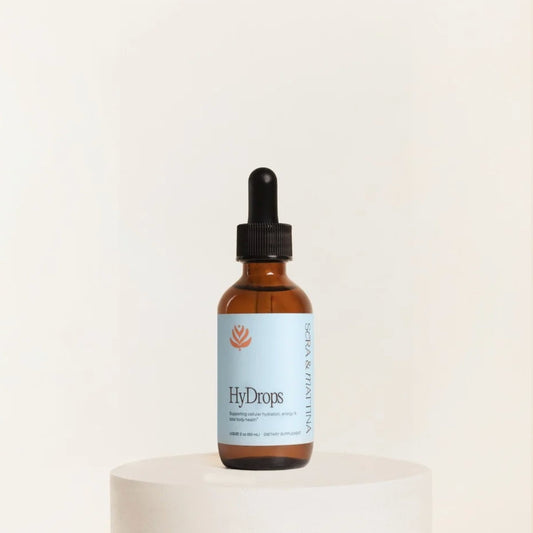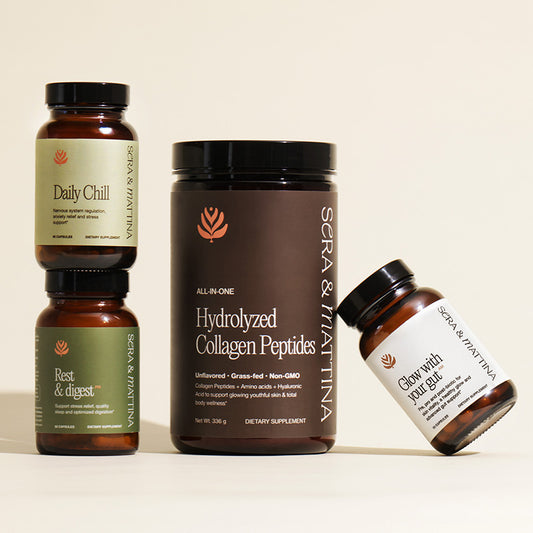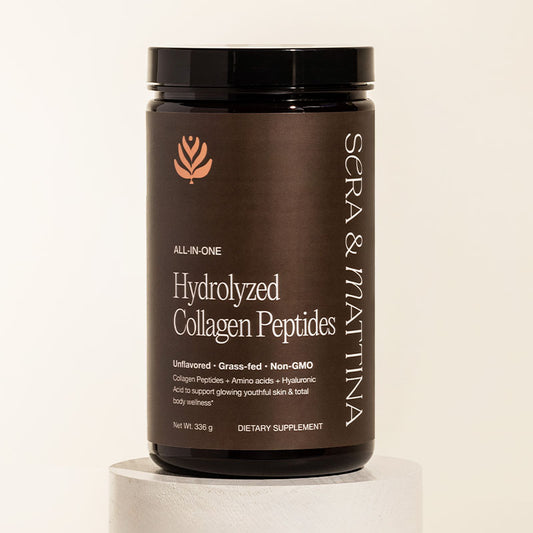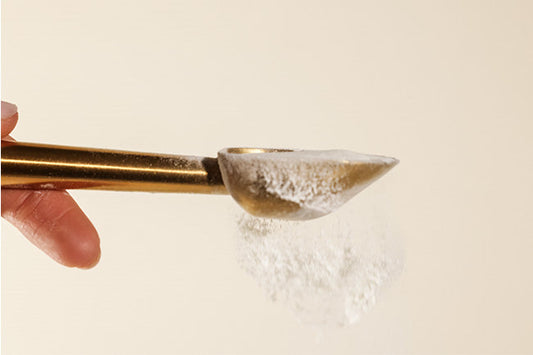The Role of Collagen in Skin Health
In the skin, collagen helps maintain its structure and elasticity. It is responsible for keeping our skin smooth, plump, and youthful. Collagen fibers form a network that supports the skin, allowing it to stretch and bounce back, which is essential for maintaining a youthful appearance.
How Collagen Declines with Age
Collagen production begins to decline as early as our mid-20s. By the time we reach our 40s, collagen levels have significantly decreased, leading to visible signs of aging such as wrinkles, sagging skin, and fine lines.
Several factors contribute to the decline in collagen production:
Aging: The natural aging process slows down the production of collagen. This decline is a part of the body's biological clock and is unavoidable.
Sun Exposure: UV radiation from the sun damages collagen fibers and accelerates their breakdown. This results in premature aging, known as photoaging, characterized by wrinkles, sunspots, and rough skin texture.
Lifestyle Factors: Poor diet, smoking, excessive alcohol consumption, and lack of sleep can all negatively impact collagen production.
Hormonal Changes: Hormonal fluctuations, especially during menopause, can decrease collagen levels, leading to thinner, less elastic skin.
Additional Impacts of Collagen Decline
The decline in collagen as we age impacts more than just the skin's appearance. It also affects joint health, leading to increased stiffness and discomfort due to the reduced cushioning between bones. In the bones themselves, lower collagen levels contribute to decreased bone density, heightening the risk of fractures and osteoporosis.
Additionally, collagen loss can weaken tendons and ligaments, making them more prone to injuries. In the muscles, reduced collagen can lead to decreased strength and flexibility. Moreover, the decline in collagen affects the blood vessels and organs, potentially impacting cardiovascular health and the overall structural integrity of vital tissues.
How to Support Collagen Production
While we can't completely stop the natural decline of collagen, we can take steps to support its production and maintain healthier skin:
Healthy Diet: Eating a balanced diet rich in vitamins and minerals can promote collagen synthesis. Foods high in vitamin C (such as citrus fruits, berries, and leafy greens) are particularly beneficial, as vitamin C is essential for collagen production.
Collagen Supplements: Collagen supplements, available in various forms like powders, capsules, and drinks, can help boost collagen levels. Look for hydrolyzed collagen such as our All-in-one Hydrolyzed Collagen Peptides with Hyaluronic Acid & Amino Acids, which are easier for the body to absorb.
Skincare Products: Topical products containing retinoids, peptides, and antioxidants can stimulate collagen production and protect existing collagen from damage.
Sun Protection: Protecting your skin from UV radiation by wearing sunscreen, hats, and protective clothing can prevent collagen breakdown caused by sun exposure.
Healthy Lifestyle: Avoiding smoking, limiting alcohol consumption, and getting enough sleep can all contribute to healthier skin and better collagen production.
Conclusion
Collagen is a vital component of youthful, healthy skin, but its production naturally declines with age. By understanding the factors that contribute to this decline and taking proactive steps to support collagen production, you can maintain your skin's elasticity and reduce the visible signs of aging. Embrace a healthy lifestyle, protect your skin from the sun, and consider incorporating collagen-boosting foods and supplements into your routine to keep your skin looking youthful and radiant.
xx







